The Government has announced the current Parliamentary session will be prorogued in April (date not confirmed yet) (you’ll remember that process from “that” prorogation). A new session will commence with a State Opening of Parliament and the Queen’s Speech on Tuesday 10 May. This means that legislation that is currently incomplete will either be dropped or will need to be allotted parliamentary time for a carry over motion debate (not quite as easy as it sounds). For HE this means the future of the controversial HE Freedom of Speech Bill is less certain although Wonkhe reported that it is likely to be carried over.
Meanwhile the Government has a plethora of consultations and white and green papers out. We can expect expectations for these to feature in the Queen’s Speech. For HE we will be watching for the legislative and regulatory changes required to implement the lifelong loan entitlement and the response to Augar (see our 3rd March update for more info. Consultations on many aspects of these things close on 6th May, so we won’t get definitive announcements on the detail that is being consulted on, and the Queen’s speech itself is very high level and so are the policy statements that come out with it.
Skills and Post-16 Education Bill
The Skills Bill is one they are trying to get through before prorogation. The Skills Bill parliamentary ping pong continues with MPs rejecting the Lords amendment relating to the changeover from BTECs and T levels. The Lords attempted to delay the defunding of BTECs and force a public consultation but MPs overturned it through their majority in the Commons. Compromises were also made on vocational careers advice provided by schools.
The outcome and more details of all the Skills Bill amendment are available in this Dods summary. The Commons Library also have a useful publication highlighting the changes as the Bill has progressed through the legislative system, shorter version here.
Next: the Bill will pong back to the Lords on Thursday 7 April. The Lords will consider the MPs’ rejection of Lord Blunkett’s BTEC amendment, which attempted to attach conditions to the defunding of BTEC/level 3 technical qualifications. Potential options:
- The Lords will accept the rejection and will not push for the amendment to added again (at this point, the Bill would have completed its passage and will be sent for Royal Assent)
- The Government will bring forward a compromise amendment, and the Lords will vote on this (if it passes, it will have to go back to the Commons where it would be agreed)
- Lord Blunkett will move to disagree with the Commons’ decision on his amendment and re-introduce it again in its current form (this is the least likely option, but it would then ping back to the Commons).
Compromise is the usual solution when there is a hard stop like this.
Levelling Up
Citizenship within Levelling up policy: The Lords Liaison Committee published a follow-up report examining the Government’s progress in implementing the recommendations made by the Select Committee on Citizenship and Civic Engagement’s 2018 report. While the (new) report focuses on citizenship, including the educational delivery of citizenship, it is worth looking past this because the Lords highlighting the importance of citizenship within the Government’s current flagship levelling up policy. In brief, the Lords criticised:
- Poor progress in improving Governmental coordination of citizenship and civic engagement policy since 2018. The Lords recommended a Minister with responsibility for Citizenship and Civic Engagement be appointed immediately within the Department for Levelling Up, Housing and Communities (DLUHC) or the Cabinet Office. The new Minister to be given latitude and authority to facilitate integrated policymaking across the Government departments including a permanent seat on the Domestic and Economic (Levelling Up) Cabinet Committee.
- The Lords are also concerned that as cabinet committee meeting are not available for public scrutiny that the Levelling Up Cabinet Committee may not be meeting or gaining traction. The related Inter-Ministerial Group leading on similar Citizenship content has not met since 2019: the Committee saw good intent in relation to the Inter-Ministerial Group for Safe and Integrated Communities and yet that group did not meet for three consecutive years. They’ve called for evidence of the scale of the work expected to be undertaken by the Domestic and Economic (Levelling Up) Cabinet Committee.
- Also the Levelling Up Cabinet Committee is criticised for the lack of cross-departmental members particularly from the Cabinet Office and the DfE.
Lord Hodgson of Astley Abbotts, who was the Chair of the Select Committee on Citizenship and Civic Engagement commented:
- Things have gone backwards rather than forwards with citizenship education in the UK since our last report. This is despite the government’s clear commitment to levelling up across the country and an Elections Bill where great stress is being placed on the importance of engagement with our voting system…
- We were promised a cross-department Minister, we didn’t get one. We were told that Ofsted should treat citizenship education is a core part of the curriculum, the evidence shows they don’t. The government had a chance to put things right in its Schools White Paper. It appears that they have missed the opportunity to do so. There is just one mention of citizenship in the Schools White Paper, and it is mentioned in the context of volunteering. We urge the Government to think again. Otherwise, they risk damaging democracy for generations to come.
Also on levelling up – Wonkhe report: Speaking to Chris Skidmore at a ResPublica event yesterday, Secretary of State for Levelling Up Michael Gove expressed his view that the number of students in higher education should be further extended, and drew links between recruitment and research and development in the creation of local high quality jobs. On the future development of the sector he saw a mixture of national missions and provider aspirations driving future developments. A twitter thread describes the key points of the discussion, and a recording is available.
Research
Dods have this on the research side of the Spring Statement:
In his Spring Statement to the House, the Chancellor also unveiled a new ‘tax plan’, part of which outlines what his focus will be for the Autumn Budget later this year. This included:
- Considering whether the current tax system, including the operation of the Apprenticeship Levy, is doing enough to incentivise businesses to invest in right kind of training.
- Reforming R&D tax credits to be more effective, expanding the reliefs to include data, cloud computing and pure maths, and considering whether to make the R&D spending credit more generous.
- He said he would also cut the tax rates on business investment in Autumn, and would consult with employers and businesses in the run-up to the Budget.
On R&D tax reliefs, the Chancellor announced these would be reformed in the Autumn Budget 2021, following a consultation launched in the Spring Budget earlier that year.
- “The government set out in the Tax Administration and Maintenance Command Paper that R&D tax reliefs would be reformed to include some cloud and data costs and refocus support on R&D carried out in the UK. The government has listened to stakeholders and can confirm that from April 2023, all cloud computing costs associated with R&D, including storage, will qualify for relief. The government remains committed to refocus support towards innovation in the UK, ensuring that the UK more effectively captures the benefits of R&D funded by the reliefs. The government recognises that there are some cases where it is necessary for the R&D to take place overseas. The government will, therefore, legislate so that expenditure on overseas R&D activities can still qualify where there are:
- material factors such as geography, environment, population or other conditions that are not present in the UK and are required for the research – for example, deep ocean research
- regulatory or other legal requirements that activities must take place outside of the UK – for example, clinical trials
- To support the growing volume of R&D underpinned by mathematical advances, the definition of R&D for tax reliefs will be expanded by clarifying that pure mathematics is a qualifying cost. Where required, legislation will be published in draft before being included in a future Finance Bill to come into effect in April 2023.”
Delivering a UK science and technology strategy: The House of Lords Science and Technology Committee heard evidence from NERC, the Medical Research Council and ESRC at the session on delivering a science and technology strategy. They covered funding and the relative responsibilities of the research councils and other delivery organisations. All the key points that you’d expect were touched upon such as 2.4% R&D funding, Horizon, interdisciplinary research promotion, research morale and opinion of UKRI, academic/industry interaction, and how the research councils will interact with Government departments and budgetary implications. Summary here. Your policy team was also happy to hear that incorporating more academic research into government policymaking was addressed and it was suggested that UKRI could do more to coordinate the work with research councils to this end. BU researchers who are interested in sharing their work with policy makers or interested in influencing policy making are encouraged to sign up to our regular influence digest which highlights opportunities, sector policy news and shares top tips to increase influencing success.
Russia research | Ukraine support package: The Government announced a £3m support package to support Ukrainian researchers at risk and the suspension of publicly funded research and innovation collaborations with Russian Universities and companies of strategic benefit to the Russian state. Research Minister George Freeman stated:
- All payments for projects delivered through UK public research funds with a Russian dimension have been paused. I have commissioned an assessment, on top of the existing and strong due diligence processes of UK public research funders, to isolate and freeze activities which benefit the Russian regime.
- We will not fund any new collaborative projects with Russia through our research and innovation organisations.
- We have suspended existing government to government dialogue through our science and innovation network team in Russia including their collaborative science projects.
- Where the UK is a member of multilateral organisations, we are working at pace with partners to respond appropriately – holding Russia to account for its actions while diminishing and isolating its influence.
- We are standing up a £3 million package of support for Ukrainian researchers at risk. We stand with Ukraine, its democratically elected government and its brave people at this awful time.
Wonkhe tell us more on the Ukrainian package: The British Academy, UK National Academies, and the Council for At-Risk Academics have announced the Researchers at Risk Fellowship Programme – a new fellowship scheme for Ukrainian researchers who are fleeing the conflict or are already in the UK and unable to return. £3m is being contributed by the Department for Business, Energy, and Industrial Strategy, and £0.5m from the Nuffield Foundation. The funding will provide visas, a salary, research costs, and living costs to successful applicants, and will be open to all postdoctoral or those with equivalent experience in all disciplines. Participatory institutions will need to identify six months’ worth of accommodation for recipients and their dependants.
A parliamentary question asking if universities should take action against academics who promote pro-Putin propaganda (set within the backdrop of the Government’s steer on HE upholding free speech) is met with a beautifully fence sitting answer: Alongside our allies, we are united in support for Ukraine. Universities, as independent and autonomous organisations, should decide whether to investigate such incidences.
Quick news:
- Wonkhe – The Economic and Social Research Council, the Arts and Humanities Research Council, and the Japan Society for the Promotion of Science, have announcedcollaborative UK-Japan projects which have been awarded funding to support international efforts to manage the impact of the Covid-19 pandemic.
- George Freeman (Science, Research and Innovation Minister) provided a written ministerial statement on the Intellectual Property Office performance targets and transformation projects.
Parliamentary Questions
Blogs:
Financial sustainability of the HE sector in England and the Spring Statement
The Public Accounts Committee published the oral evidence from the latest Financial sustainability of the HE sector in England session. The DfE and OfS were called as witnesses. A shorter summary is here. The session covered grade inflation, international students, financial support/Augar, risk modelling, student satisfaction and outcomes, regulation, value for money, student protection plans, minimum entry requirements, and the new loan terms.
In the Spring Statement the Chancellor said that there would be a review of the apprenticeship levy.
Regarding levy reform, last month the CBI challenged the Government to pursue more ambitious growth with new policies – one of which was to replace the Apprenticeship Levy with a new Skills Challenge Fund, to “incentivise more flexible training to meet skill shortages and rewards firms who invest beyond their apprenticeship levy levels”. Leaders across the sector have raised Levy reform for some time, and today’s announcement could represent a step towards this.
PQs:
Education Committee: Universities
The Education Committee ran a session questioning witnesses on the HE sector. Topics included outcomes for disadvantaged students, anti-Semitism and free speech. The NUS was criticised by Committee Chair Robert Halfon as they did not provide a witness for the session. A summary of the committee session is available here provided by Dods and good coverage by Wonkhe is available in: Is OfS asleep or woke at the wheel?
Here are the key discussion points from the session (which at times felt like an echo chamber):
- 92% of the British public believe antisemitism is a problem in universities.
- The witnesses presented a number of points to evidence that universities are not upholding free speech.
- The Committee criticised the OfS for not intervening enough to tackle antisemitism in universities including noting that the rapper Lowkey had been asked to attend the NUS conference, a rapper he said had made antisemitic statements. The committee then went on to criticise the University of Nottingham for revoking the honorary degree award to Tony Sewell following a report on UK institutional racism. Highlighting once again the difficulty of drawing the unclear free speech/antisemitism line with different actors believing it should be drawn in different places.
- While headline figures suggest more disadvantaged pupils are going to university the number of part time students has dropped. Disadvantaged pupils remain less likely to access the higher tariff institutions, more likely to drop out and less likely to have good employment outcomes. Concern was express that the gap between advantaged and disadvantaged is not narrowing.
- On disadvantaged students witness McKellar (VP at UUK) said disadvantaged students started form a legacy of poorer education, and often had to do part-time work, because they lacked social capital. There was a need for universities to create Access and Participation Plans (APPs) which supported disadvantaged students. He said in general these plans had worked better in other areas, such as closing the BAME attainment gap.
- Witness Humphries (Chair, University Alliance) said the availability of more scholarships and support – including grants as low as £500 – would help. She also pointed to the role of peer mentoring and better careers guidance.
- Dandridge (OfS) stated tackling disadvantage was a core priority as in addition to APPs the OfS looks at post-university progression, as poor progression after university could be a breach of a regulatory condition. Dandridge also stated disadvantaged participation was creeping up but measures not happening fast enough.
- Careers and the role of research and knowledge exchange with employers were discussed.
- Old chestnuts such as students not repaying their loans and is attending university really of value to society or enabling social mobility were trotted out. As were courses that were poor value for money (due to strike action, poor mental health support, high costs of tuition and lack of in-person teaching). Pensions were mentioned.
- Blended learning was discussed with an overall positive tone.
- BAME students drop out / lower degree classification and staff representation in senior roles were raised. Diversity at Board level was raised. McKellar (UUK) called for quotas for both academic staff numbers and senior representation of BAME staff. Dandridge (OfS) highlighted the UKRI programme on black progression into research careers.
- On the Government’s implementation of the Augar review Clare Merchant (Chief Executive, UCAS) said recent UCAS analysis on GCSE English and Maths levels suggested that those on free school meals, some BAME communities, and those in certain disadvantaged areas, were less likely to obtain the requisite levels at GCSE. Other concerns about the impact of minimum entry requirements and possible student number caps and their disproportionately disadvantaging effect compounding existing disadvantage were raised by other witnesses.
Related to the above points made during the Education Committee are comments that Emma Hardy (previous Shadow Minister for FE & HE Education) made at an accountability meeting and again at the Treasury Committee Spring Statement session. Wonkhe report: At the Treasury Committee Emma Hardy highlighted the regressive nature of changes to student loans, and the impact of these changes on the national accounts. Rishi Sunak described the reforms as “sensible”, and emphasised that nobody will pay more back in real terms than what they borrowed. Hardy noted that this change would only affect higher earners, with lower earning graduates likely to pay more than under the current system. Sunak rejected Hardy’s characterisation of the changes as “a tax on low earners” despite the evidence presented from Office for Budgetary Responsibility and Department for Education figures. You can watch the committee session on parliamentlive.tv.
There’s also a very short Wonkhe explainer, snippet:
- Hardy’s argument is that this has a place based effect – graduates earning around the average wage in Hull will pay a lot more than they currently do, graduates earning around the average wage in London will pay less than currently. The opposite – in other words – of “levelling up”.
- There’s a tendency in expert commentary to see this as a niche issue affecting only a small part of the population – but with participation rates rising (and set to rise further if we take into account both demographic bulging and the LLE opening the loan system to more people) there is a sizable marginal tax rate impact for a large part of a generation.
Graduate Jobs
The Institute of Student Employers has released their 2022 Student Development report which compiles trends following a survey of the Institute’s employer membership base. It’s sat behind a paywall so here is Wonkhe’s synopsis:
- Every year Institute of Student Employers (ISE) surveys its member employers to get their view of graduate skills – in this year’s Student Development Survey reportwe get the picture of the impact of the pandemic, as well as an update on larger trends in graduate employment, with data drawn from 107 employers. ISE analysis concludes “there is a renewed focus on the soft skills required for a post-Covid workplace.”
- A third of respondents say their skills needs have changed as a result of Covid-19 – focusing on independence, resilience/growth mindset, adaptability, and confidence. 65 per cent of employers expect their new hires to be able to work remotely, up from 45 per cent in 2021. There is also greater expectation that graduates will arrive with technical skills such as coding and data analysis – or be able to acquire these skills. Expert insight from University of Leeds academic Helen Hughes suggests that early career hires may struggle to access development opportunities and secure visibility of their work if there is more hybrid and remote working.
- There is a long term downward trend in retention of graduate hires three years post-graduation – down to 72 per cent from 79 per cent in 2011, suggesting that employers may need to work harder to retain early career staff in the post-Covid workplace. 61 per cent reported demand for mental health support has increased during the pandemic and 89 per cent report providing mental health support and counselling particularly for early career hires.
There’s also a blog written by Nicola Thomas of ISE: Never have the skills required to thrive in the workplace shifted so dramatically in a two year period as in the last two years.
Access & Participation
We wrote about UUK’s new Fair Admissions Code of Practice recently – as of 1st April there is a long list of universities who have signed up to it.
The OfS issued some data on their participation performance measures.
As you have seen in our recent commentary on the B3 licence condition consultation and TEF plans, continuation is a key metric for the OfS. They note from this data that there is a difference of 3.7% for continuation between the most and least represented groups. These splits will feature in the regulatory and the TEF data and so we can expect scrutiny of this – the Ofs target is “To eliminate the unexplained gap in non-continuation between most and least represented groups by 2024-25, and to eliminate the absolute gap by 2030-31”.
Wonkhe report on the black attainment (degree classification) gap:
- The gap between the proportion of black undergraduate qualifiers and the proportion of white qualifiers in England achieving a first class degree has almost doubled in a decade, widening to almost 20 percentage points in 2020-21…..Its headline measure on “good honours” attainment, which combines first class and upper second class honours, saw further improvement as a continuation of a long term trend – but masks the significant differential when only considering firsts.
Similar issues apply to the degree outcomes for disabled students.
As well as updating the KPM analysis, OfS has updated its Access and Participation Dashboard with figures for 2020-21, updated sector-level information on student’s qualifications on entry to higher education and their subject of study, and published a report that summarises the key gaps in access, continuation and attainment at a sector level for different student characteristics.
Blogs
Parliamentary Questions
OfS
It is Ministerial letter time. After the flurries of letters from Gavin Williamson, things had gone a bit quiet, but a letter appeared on 31st March 2022, offering guidance on strategic priorities. It replaces the previous guidance up to February 2021, but notably the guidance on teaching grant (strategic priorities grant) stays in place. The priorities as set out will not surprise you. Although the encouragement to the OfS to carry out in person inspections of 10-15 institutions is interesting and the instructions on how the new B3 enforcement regime will be carried out.
- We are clear that HE has an important role to play in delivering the government’s moral, economic and social vision for levelling up: supporting strong regional and economic growth, developing partnerships with Further Education colleges and local employers to improve the skills base nationally, and working with schools to drive up attainment
- We welcome the OfS’s ongoing engagement on the development of the LLE to date and would like this engagement to continue in 2022-23. Together we need to ensure that the LLE is supported by an appropriate regulatory regime, fully equipped to support radically different, flexible arrangements, measuring quality using metrics that are meaningful in the new system and which interact positively with our admissions regime
- Cold spots…We would like the OfS to explore ways of encouraging the expansion of HE provision into new areas, while ensuring that high quality provision is maintained
- We would like the OfS to work with officials to help to grow the uptake of high-quality technical education and degree apprenticeships including, where possible, through the use of access and participation targets, information and guidance, as well as supporting the raising of the profile of IoTs.
- … it is our clear and firm expectation that the OfS will use the new outcome thresholds to identify providers with unacceptable levels of performance and challenge them. In the event that they cannot convincingly explain and justify their student outcomes data, then this should provide the basis for generating robust regulatory investigation and action. In cases where low and unacceptable quality is confirmed, action should include, where appropriate, financial penalties and ultimately the suspension or removal of the provider from the register (and with it, access to student finance)
- our priorities for investigation are:
- larger providers with university title which are below proposed numerical thresholds either for the whole provider, or multiple subject areas; and
- a set of investigations focused on a major subject grouping with large numbers of students and high variation in outcomes, such as Computer Science or Law, with the intention to drive up the quality of those courses across the sector as a whole; and
- providers where OfS has long-standing concerns about quality which are confirmed or strengthened by numerical data on student outcomes
- Our expectation is that the OfS should … implement a visible and effective inspections regime against the other B (Quality) conditions of registration, that will involve on-site inspection of 10-15 providers next year, that will root out pockets of poor provision and will result in regulatory action where appropriate. Through this activity, we would expect the OfS to focus on the following priorities:
- that online learning should be used to complement and enhance a student’s learning experience, not to detract from it;
- the provision of sufficient contact hours, particularly where this has been flagged by intelligence from students; and
- the importance of maintaining rigour in assessment, including appropriate technical proficiency in English necessary to secure a good outcome for all or some students.
- …., we want to offer our support for the OfS proposals for a refreshed Teaching Excellence Framework (TEF) and, in particular, welcome the proposed introduction of the new ‘Requires Improvement’ category
- On APP: we would like the OfS to work at pace to publish guidance this spring, calling for providers to bring forward variations to their current A&P plans where these do not currently meet the new expectations. We would like to see these approved this autumn, to take effect from September 2023. Where providers with substandard plans fail to bring forward variations voluntarily, the OfS should not hesitate in calling on those providers to submit a new plan for approval.
- We endorse the OfS’s proposal to move to a four-year A&P plan cycle, with a full rewrite of new A&P plans at the end of 2023, to come into effect by September 2024
- We would also like to see providers incorporate data on completion rates and entry into professional employment, or further study, in all their advertising of subjects and courses from the start of the next admissions cycle
- Anti-Semitism, freedom of Speech bill
- We welcome the OfS’s publication of the statement of expectations on sexual harassment and misconduct last Spring …. in our view, the OfS should include this in a condition of registration as soon as possible.
- we would like the OfS to work with officials and sector stakeholders to consider how we can ensure that the student interest is placed at the centre of fair and transparent admissions practices, and that the sector avoids practices where students may feel pressured into making decisions, including through the use of ‘conditional unconditional’ offers
And on funding – a separate letter also came out on grant funding. Research Professional have a summary:
- …the ministers set out how funding will be distributed next year after it pledged £750 million over three years last month to support “high-quality teaching and facilities” such as engineering and nursing.
- The strategic priorities grant will rise by 5 per cent to £1,397m in 2022-23 from £1,330 million in 2021-22. Of the £56m rise, £32m is for strategically important subjects, particularly those connected to health.
- Capital funding will be £450m between 2022-23 and 2024-25, compared with £150m in 2021-22. There will be up to £4m across the 2022-23 financial year to support Ukrainian nationals and Ukrainian-domiciled students affected by the war, and universities will have £5m to set aside for “emerging priorities”.
- However, the student outreach programme Uni Connect will lose £10m next year after losing £20m this year, and student hardship funds will go without the £5m pandemic-related boost they received last year.
More detail from RP here. And you can find the letter itself here. Some interesting points:
- we want to further accelerate the growth of degree apprenticeships and encourage Higher Education Providers to expand their existing offers, or develop new ones, where they are best placed to do so. We will explore options with the OfS for supporting this important provision with up to £8m of funding for this goal
- To encourage greater provision of level 4 and 5 qualifications we are providing £8m in the 2022-23 financial year to be allocated to providers with eligible learners on level 4 and 5 qualifications, through formula funding
- we will explore options with the OfS for using an additional £10m of funding in the 2022-23 financial year to increase the amount of skills provision at levels 4 to 6 available in preparation for the launch of the LLE from 2025.
- Mental Health: We have listened to students and the HE sector and would like the OfS to distribute funding, at a similar level to that disbursed last year, to give additional support for transitions from school/college to university, and through targeting funding to support partnership working with NHS services to provide pathways of care for students
- No additional student hardship funding for 2022/23
- Capital funding: We would like the OfS to continue allocating the majority of funds to providers through a competitive bidding process, to continue to target funds at specific projects and activities supporting high-quality, skills-based education but to do so using a multi-year approach.
In the meantime the OfS had published their 2022-2025 strategy focusing on quality and standards, and on equality of opportunity. The strategy aims for:
- students to receive a high quality academic experience that improves their knowledge and skills, with increasing numbers receiving excellent provision
- rigorous assessment and for qualifications to be credible and comparable
- a focus on free speech
- using incentivisation, regulation and providing a focus so that the subjects graduates study contribute usefully to the economy/industry and the levelling up agenda
- student access, success and progression is not limited by their background, location or characteristics
- a diverse range of courses and providers are available for students to choose from; provision is flexible and innovative and access to people at all life stages
- harassment and sexual misconduct are responded to effectively if they occur
- the environment supports student mental health and wellbeing to enable success in HE
- HE providers are financially viable, sustainable and have effective governance
- the promised academic experience is delivered to students and consumer protection is applied
- minimising the OfS regulatory burden – action to meet the OfS goals and regulatory objectives
A summary is available here. Full content here.
Details of the latest appointments to the OfS board are here.
PQs:
Education Policies: White and Green
Education: Schools White Paper: The Schools White Paper – Opportunity for All: strong schools with great teachers for your child. Dods summary here (see first 6 pages).
Key aspects of the paper are:
- Strong teaching (including aspects on teacher training, recruitment and the retention of teachers delivering key subjects in deprived areas through enhanced pay).
- High standards for the curriculum (English and Maths are key foci, increasing average GCSE grade from 4.5 to 5 by 2030), behaviour and attendance (minimum 32.5 hours in school by 2023). Every school to have access to funded training for a senior mental health lead to deliver a whole school approach to health and wellbeing. New plans for sport, music and cultural education. New modern foreign language network hubs and professional development. More students to take the EBACC.
- Targeted support for children who are behind in English and maths via a new parent pledge, guidance on the catch up (again with parent communications so parents stay informed) but without labelling and over testing; tutoring expected to be funded out of school core budgets including pupil premium.
- All schools to be in a ‘strong’ multi-academy trust (MAT) by 2030 with new intervention powers to address MATs that are not strong. (There’s a new consultation on it here.) Plus transparency measures for parents to understand their top slicing of school budgets. Exceptionally schools may be able to move MATs. Local Authorities will receive ‘backstop powers’ to force trusts to admit children, and to object to schools’ published admissions numbers. Lots more on MATs in the summary.
- A nice section in the summary page 5-6 which highlights the ‘re-announcements’ i.e. the aspects the Government have already released information or funding on. So if you are wondering if some aspects are new money or new interventions the ‘re-announcements’ detail what isn’t new but makes sense to sit under the White Paper umbrella.
SEN Green Paper: Nadhim Zahawi launched the green paper Special Education Needs and Disability Review through a debate in Parliament on Tuesday. Dods summarise the content here or there is a short Government press release: Ambitious reform for children and young people with SEND.
Other news
NUS: The NUS have elected new leadership. Wonkhe – NUS has announced that Shaima Dallali – currently President of City, University of London Students’ Union – was elected UK President for a two year term starting in July. Chloe Field – from Liverpool Guild of Students – was elected Vice President for Higher Education. Jewish News reports on concerns over Dallali’s “historic tweets” (since deleted), and her apology for them.
HE Data Reduction: Yes, you’ve heard it all before. Here’s the news from Wonkhe: Higher and further education minister Michelle Donelan has announced that she will chair a HE Data Reduction Taskforce. The new taskforce will meet every six weeks to “streamline and simplify reporting requirements” on higher education institutions. We understand that representatives from HESA, the Education and Skills Funding Agency, the Student Loans Company, OfS, Ofsted, Ofqual, UCAS, and the Institute for Apprenticeships and Technical Education – along with experts from the wider sector – will have a particular focus on instances of duplication in data requirements. The Task Force will produce interim recommendations within three months, and a final report after six months.
This announcement comes following a written parliamentary question from Shadow HE minister last week asking Michelle Donelan what steps have been taken to ensure that higher education providers have a good understanding of (a) the reasons for which the Office for Students collects the data it does and (b) how it uses that data.
Turing mobility scheme: PIE news has a good quick read:
- Improvements proposed for UK Turing scheme. Excerpt: while the new outward mobility program is being praised for the short mobility opportunities it presents and its weighting towards disadvantaged students, improvements could create a more efficient program, they have suggested.
- UUKi is calling for the current 12-month project cycle to be shifted to a multi-year funding model.
- “We think [that] would better support, not only the Global Britain agenda and the widening participation goals, but students to apply for actual funding so they can have funding confirmed earlier on,” said UUKi head of Global Mobility Policy Charley Robinson.
More here. And the second year of the Turing Scheme bids has opened.
Graduate shaped learning: Wonkhe – Miriam Firth explains why incorporating graduates’ working experiences into teaching is essential to helping students develop.
Subscribe!
To subscribe to the weekly policy update simply email policy@bournemouth.ac.uk. A BU email address is required to subscribe.
External readers: Thank you to our external readers who enjoy our policy updates. Not all our content is accessible to external readers, but you can continue to read our updates which omit the restricted content on the policy pages of the BU Research Blog – here’s the link.
Did you know? You can catch up on previous versions of the policy update on BU’s intranet pages here. Some links require access to a BU account- BU staff not able to click through to an external link should contact eresourceshelp@bournemouth.ac.uk for further assistance.
JANE FORSTER | SARAH CARTER
VC’s Policy Advisor Policy & Public Affairs Officer
Follow: @PolicyBU on Twitter | policy@bournemouth.ac.uk
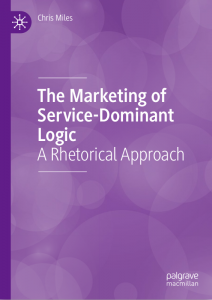
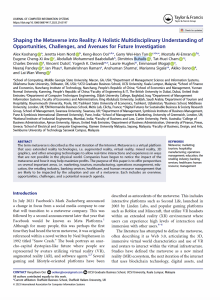
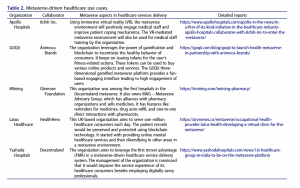
 BUBS Consumer Insights Research Theme based in the Department of Marketing Strategy and Innovation draws together a team of 13 researchers addressing how consumers think, feel, and behave.
BUBS Consumer Insights Research Theme based in the Department of Marketing Strategy and Innovation draws together a team of 13 researchers addressing how consumers think, feel, and behave.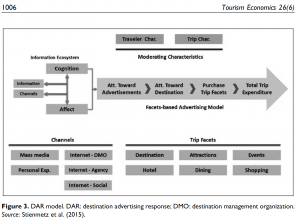



 #TalkBU is a monthly lunchtime seminar on Talbot Campus, open to all students and staff at Bournemouth University and free to attend. Come along to learn, discuss and engage in a 20-30 minute presentation by an academic or guest speaker talking about their research and findings, with a Q&A to finish.
#TalkBU is a monthly lunchtime seminar on Talbot Campus, open to all students and staff at Bournemouth University and free to attend. Come along to learn, discuss and engage in a 20-30 minute presentation by an academic or guest speaker talking about their research and findings, with a Q&A to finish.  Secure, clean and efficient energy, (Horizon 2020, Societal Challenge 3) has a number of opportunities relevant to BU in 16/17. With specific calls ranging from consumer behaviour to energy efficiency and renewables, there really is something for everyone in Societal Challenge 3.
Secure, clean and efficient energy, (Horizon 2020, Societal Challenge 3) has a number of opportunities relevant to BU in 16/17. With specific calls ranging from consumer behaviour to energy efficiency and renewables, there really is something for everyone in Societal Challenge 3.
![image[1]](http://blogs.bournemouth.ac.uk/research/files/2016/05/image1-1-300x113.jpeg)
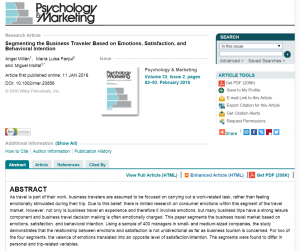














 Conversation article: London Marathon – how visually impaired people run
Conversation article: London Marathon – how visually impaired people run Horizon Europe News – December 2023
Horizon Europe News – December 2023